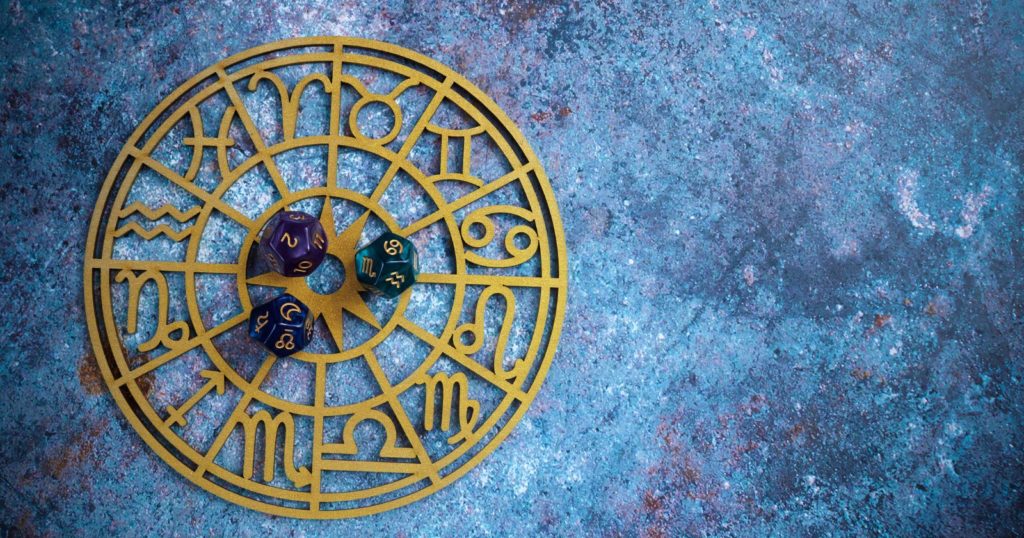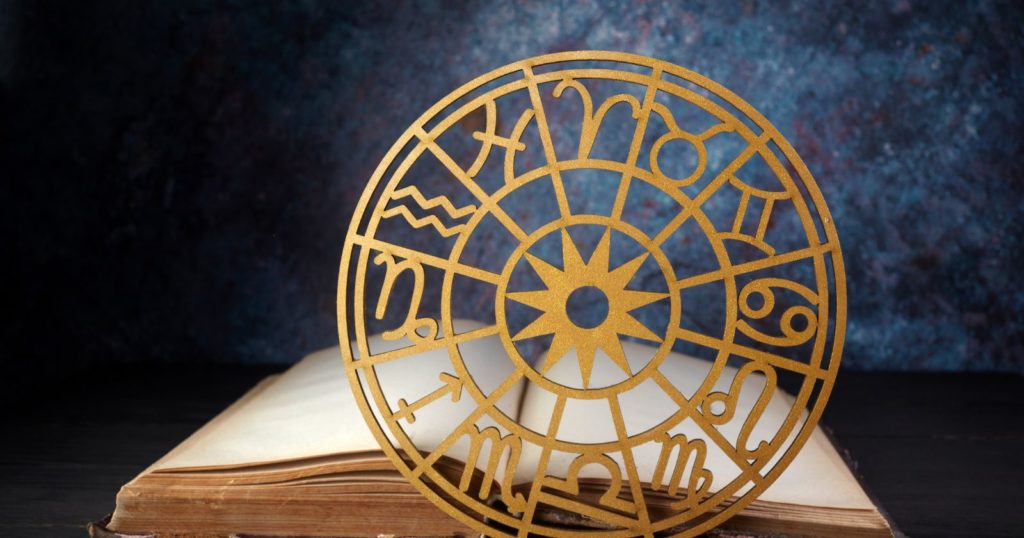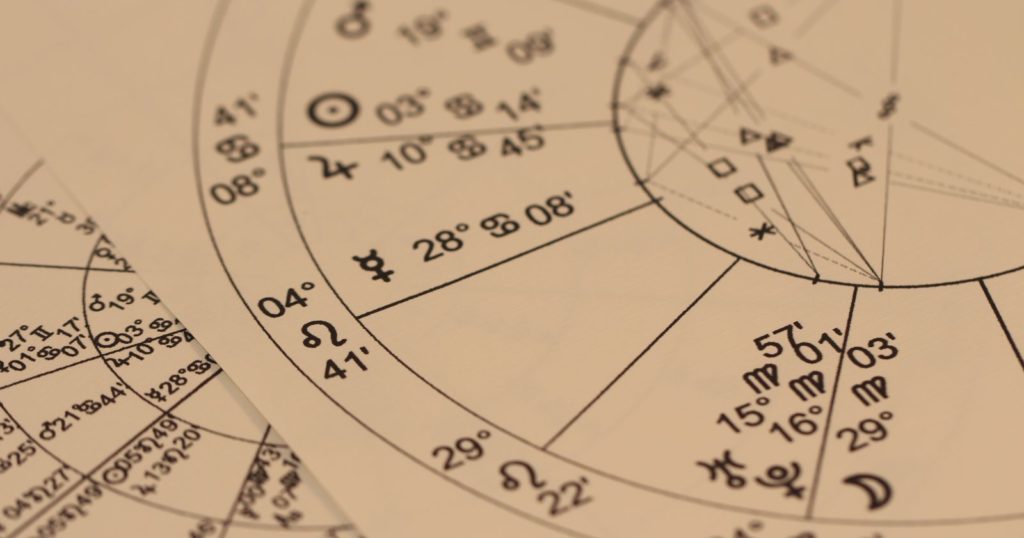Have you ever looked at the twinkling expanse of the night sky and pondered what secrets those cosmic constellations might be whispering about your destiny? Have you ever found yourself captivated by the mysterious yet oddly familiar realm of horoscopes and astrology? If so, then welcome, brave traveler, to the ‘horoscope zone’.
Astrology, the ancient practice of seeking personal insight from the celestial bodies, has been a part of human civilization for thousands of years, traveling through time and across cultures, evolving into the modern horoscope phenomenon we know today. It’s a world of symbols, signs, houses, and aspects, a cosmos within itself—our ‘horoscope zone’. In this realm, the celestial bodies that scatter across our sky, distant yet intimately connected to us, seem to narrate our lives’ stories, guiding us towards self-understanding and fulfillment.
This article will take you on a journey through the ‘horoscope zone’, an exploration of its five most intriguing aspects that will challenge conventional wisdom, shatter preconceptions, and might just leave you questioning your understanding of yourself and the universe around you. We’ll be navigating through the history, science, psychological facets, its cultural impact, and the potential future of this fascinating field. So buckle up, as we set off on an exciting voyage into the cosmic dance of astrology, where the constellations aren’t just pretty patterns in the sky but keys to unlocking a deeper understanding of our lives.
Whether you’re a skeptic looking for a fresh perspective, an enthusiast seeking deeper insights, or just curious about this mystical sphere, you’ll find something to pique your interest in the ‘horoscope zone’. The cosmic revelations await you!
1: A Stroll through History: The Evolution of the Horoscope Zone
The ‘horoscope zone’ is far more than a modern trend; it is deeply rooted in our history, its story entwined with the evolution of civilization itself. This journey through time takes us back to ancient Mesopotamia, over 4,000 years ago, where astrology first began. The Babylonians, astute observers of the cosmos, were the first to connect celestial patterns with earthly events, thus laying the foundations for what would evolve into the horoscope zone.
This astrological wisdom traveled to Greece around the 4th century BCE, where it became integrated with the mythologies and philosophies of the time. It was here that the twelve signs of the Zodiac were established, each associated with a specific time of the year and unique set of characteristics. The word ‘horoscope’ itself derives from Greek, meaning ‘observer of the hour,’ reflecting the intricate connection between time, celestial bodies, and human fate.
The Romans, the grand inheritors of Greek knowledge, then adopted this system, renaming the Greek gods with their Roman equivalents, which is why we have ‘Mars’ the warrior, not ‘Ares,’ and ‘Venus’ the lover, not ‘Aphrodite.’ Over centuries, as the Roman Empire expanded, so did the horoscope zone, reaching every corner of their territory.
In the Middle Ages, astrology enjoyed immense popularity and was considered a scholarly discipline in line with medicine and theology. Kings and queens sought astrologers’ counsel, and horoscope readings were a common part of life. The Renaissance saw a decline in its status due to the scientific revolution, but it was not extinguished.
The ‘horoscope zone’ as we know it today, with daily, weekly, and monthly horoscopes, was popularized in the 20th century, largely due to the work of astrologer R.H. Naylor. His horoscope column for the British newspaper, ‘The Sunday Express,’ became a surprising hit among the public, paving the way for astrology’s entry into mass media and its transformation into a global phenomenon.
This voyage through history shows that the ‘horoscope zone’ has always been a part of our cultural narrative. It was our attempt to understand ourselves in relation to the world and the cosmos. This ancient wisdom has evolved and endured because it taps into a fundamental human desire – to know ourselves better and to seek guidance in the face of uncertainty. Whether you regard astrology as science, art, or a bit of fun, its historical journey is truly a fascinating one, shedding light on its enduring appeal in our modern world.
2: Science and the Stars: Debunking Myths and Misconceptions
When it comes to the ‘horoscope zone’, one of the most contentious debates is its scientific credibility. Many dismiss astrology as pseudoscience, arguing that there’s no empirical evidence to prove that the positions of celestial bodies at the time of birth can influence an individual’s personality or destiny. But does that entirely invalidate the experience of millions who find meaningful insights in their horoscopes?
While astrology doesn’t align with the scientific method’s rigorous demand for empirical proof and reproducibility, that doesn’t necessarily strip it of all value. After all, not every aspect of human existence and experience can be neatly quantified or measured. Qualitative experiences like love, happiness, and hope cannot be empirically tested, yet we accept their validity without question.
In the ‘horoscope zone’, it’s essential to make a distinction between astrological ‘signs’ and ‘predictions.’ The former refers to personality traits associated with zodiac signs, while the latter points towards specific outcomes. The issue of reliability often stems from the vague and generalized nature of astrological predictions, which skeptics argue can apply to anyone.
Yet, the personal resonance many people find in their horoscope signs is where the heart of astrology truly lies. This connection is a psychological phenomenon known as the “Forer effect” or “Barnum effect,” where individuals find generic statements personally applicable due to our cognitive biases. This doesn’t dismiss the value of astrology but instead points to its strength in providing a framework for introspection and self-understanding.
Astrology and the horoscope zone can be seen as a tool to reflect on our character traits, strengths, weaknesses, and potential areas for growth. While it’s not scientific in the conventional sense, it offers a unique perspective on human behavior and personality, prompting introspection and exploration of the self. In a way, it bridges the gap between science and spirituality, reality and the mysterious, by offering a language to explore and understand our inner world.
So, as we journey through the ‘horoscope zone’, let’s remember that this cosmic realm is more than just about scientific credibility. It’s a space of self-discovery and understanding, offering a unique lens to view ourselves and our lives. Whether we approach it with skepticism or belief, there’s no denying the profound influence the stars have had on our collective psyche and the introspective richness they offer.
3: The Horoscope Zone: A Psychological Odyssey
Astrology’s enduring appeal isn’t solely due to its historic roots or the fascination with celestial bodies; it’s intimately tied to our psychological experiences and the universal quest for self-understanding. The ‘horoscope zone’ has become a personal tool for introspection, identity formation, and understanding our interactions with the world around us.
The language of astrology is rich in symbolic meaning, and the narrative it presents resonates with the archetypal patterns in our subconscious, a concept famously explored by psychologist Carl Jung. Jung proposed that archetypes—universal symbols or themes that influence our thoughts and behaviors—are an integral part of the human psyche. In the ‘horoscope zone’, each zodiac sign represents such an archetype, offering a framework for us to understand and articulate our identities.
For example, an Aries might identify with the archetype of the ‘warrior’—fierce, independent, and brave—while a Libra could resonate with the ‘peacemaker’ archetype, striving for balance, harmony, and fairness. By associating ourselves with these archetypes, we find a language to understand and articulate our strengths, weaknesses, motivations, and fears. This symbolic language allows us to project complex aspects of our psyche onto the external world, making abstract psychological experiences tangible and relatable.
Astrology also provides a sense of control in an unpredictable world. It offers a roadmap of sorts, helping us navigate through life’s ups and downs. While it may not predict specific outcomes, it provides comfort and guidance in times of uncertainty, giving us a sense of direction when we feel lost. This is particularly relevant in today’s rapidly changing, anxiety-inducing world, where the ‘horoscope zone’ acts as a sanctuary, offering solace and understanding amidst the chaos.
The ‘horoscope zone’ is more than a celestial guide—it’s a psychological odyssey. As we explore the cosmic influences on our personality, we embark on a journey of self-discovery and understanding. It’s a space where we can reflect on our behaviors, attitudes, and relationships, making sense of who we are and who we aspire to be. It’s not just about the stars; it’s about the complex universe within each one of us.
4: The Cultural Impact and Future of the Horoscope Zone
Astrology’s cultural impact is undeniable. The ‘horoscope zone’ has permeated various facets of our society, influencing art, literature, music, fashion, and even business. With the digital age, its reach has only expanded, carving out a significant space in the realm of social media and digital content.
In a world where science and technology have become dominant, the horoscope zone’s popularity may seem paradoxical. However, it reflects a collective yearning for a sense of connection and understanding beyond our material reality. In the face of life’s complexities, astrology offers an interpretative framework, a narrative that makes sense of the seemingly chaotic events and emotions.
Moreover, the horoscope zone is also emerging as a form of resistance against rigid societal norms and definitions. It embraces diversity, recognizing that each zodiac sign, just like each individual, possesses a unique blend of traits, strengths, and weaknesses. Astrology champions self-acceptance and personal growth, encouraging us to embrace our authentic selves.
Looking towards the future, the horoscope zone continues to evolve. As psychology and neuroscience advance, we may gain deeper insights into why astrology resonates so powerfully with us. Astrology apps and digital platforms are innovating the field, personalizing horoscopes using complex algorithms and integrating them into daily routines. The rise of astrological counseling points towards a new blend of psychology and astrology, further emphasizing its role as a tool for personal development.
5: The Fifth Dimension: Astrology as a Gateway to Spiritual Growth
The final dimension of our exploration into the ‘horoscope zone’ draws us towards the spiritual realm. Many people consider astrology not just as a psychological tool or a historical curiosity, but as a profound spiritual practice. It’s seen as a cosmic compass guiding us towards a deeper connection with the universe and, ultimately, ourselves.
Astrology invites us to consider that we are part of a greater cosmic scheme, intimately connected with the universe’s rhythms and cycles. It postulates that our lives are not random occurrences but are intertwined with the movements and positions of celestial bodies. This concept aligns with many spiritual traditions, emphasizing unity, interconnectedness, and the existence of a higher order or divine plan.
Through the horoscope zone, individuals can find a path to self-awareness and spiritual growth. It promotes introspection and self-reflection, urging us to understand ourselves better and encouraging personal growth. Each zodiac sign’s associated traits provide insight into our strengths and weaknesses, helping us recognize areas for improvement and fostering personal development.
The houses in an astrological chart, representing different life areas, can show where we may face challenges and where our strengths lie. By studying these aspects, we can align ourselves more harmoniously with our spiritual path, leading to a greater sense of peace and fulfillment.
Additionally, the practice of astrology can enhance mindfulness. As we attune ourselves to the celestial cycles—such as the moon’s phases or the retrograde motion of planets—we become more aware of the passage of time and our place within it. This awareness can help ground us in the present, fostering gratitude and mindfulness.
Conclusion
The horoscope zone, with its intriguing blend of history, symbolism, and psychology, will continue to captivate our collective imagination. Regardless of its scientific validity, its enduring appeal lies in its ability to inspire self-reflection, provide comfort, and make sense of our complex world. As we navigate through this cosmic realm, we realize that the ‘horoscope Zone’ is more than a celestial guide—it’s a mirror reflecting our shared human experience, our yearnings, hopes, fears, and our endless quest for self-understanding.
The ‘horoscope zone’ offers a gateway to spiritual growth, encouraging self-awareness, personal development, and a deeper connection with the universe. It’s a journey of the soul, a path of discovery, leading us towards a more fulfilling and meaningful existence. So, as we navigate the cosmic currents of the ‘horoscope zone’, we aren’t just exploring the stars—we’re discovering ourselves.
Resources:
- “The Astrology Book: The Encyclopedia of Heavenly Influences” by James R. Lewis
- “Jung on Astrology” by C.G. Jung, Safron Rossi, and Keiron Le Grice
- “Astrology: Using the Wisdom of the Stars in Your Everyday Life” by Carole Taylor
- “Astrology for the Soul” by Jan Spiller




